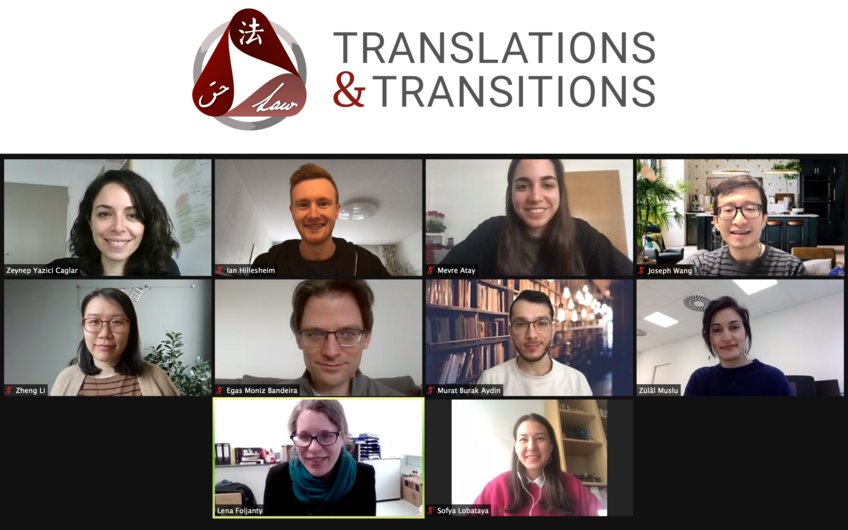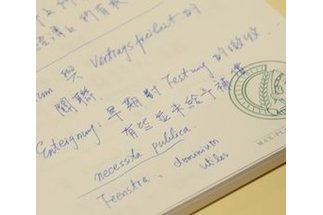
Translations and Transitions
Ehemalige Max-Planck-Forschungsgruppe
Legal Practice in 19th Century Japan, China, and the Ottoman Empire
Legal practice is the field in which the complexity of law becomes most evident. Judicial decision-making is bound to the legislative framework, to self-produced norms; it is linked to institutional logics, procedures, and dynamics of the legal discourse, to habitus and socialisations, as well as to traditions and socio-political factors. In the nineteenth century, all of these factors underwent an immense transformation. The project ‘Translations and Transitions’ approaches these changes by investigating the perspectives of those who were perceived as ‘outsiders’: Japan, China and the Ottoman Empire. Pressed by the Western powers and by internal needs for reform, all three countries introduced profound reforms. In a process that took place over the course of many decades, every aspect and dimension of the law was reconsidered: the normative and institutional framework of law, its epistemologies, and even its language. Their ambition was no less than to replace the entire legal universe with a legal order corresponding to Western standards. What did it mean to establish a legal practice on such shaky ground? How did practitioners reinterpret the Western legal ideas, and how did they contribute to the shaping of what law should become in the new social order?
While significant research has been conducted on each of the three cases, there has been no attempt to initiate an exchange between the three national legal histories up till now. The research project ‘Translations and Transitions’ aims to fill this gap. It examines the three variations of the transformations that took place in the nineteenth century not by means of a large-scale comparison, but rather by bringing together several different case studies, inquiring into the complex interplay between the newly created normative framework, the changing professional identities and understandings of law, and the practices that shaped legal decision-making. Through the constant interaction and exchange between the group members, the view on the respective cases will be sharpened, reflecting also the fact that European judicial practice that served as a model was anything but static and that ‘law’s modernity’ (A. Rubin) was still about to be negotiated in Europe, too. On this basis, the project will be able to identify and assess the characteristics of legal practices that were shaped by ‘translating the West’ (D. Howland).
Network
The core of the project is the collaborative research by the group members. Going beyond that, the project also created a network between experts on modern Japanese, Chinese, and Ottoman legal history for comparative exchange.
The network was initiated in 2018 and offers a platform for communication on all aspects of the legal transformation in 19th- and early 20th-century Japan, China and Ottoman Empire. The two workshops in March 2018 and March 2019 carried out selected comparisons, shedding light on specificities and commonalities of the transformation processes across the three countries. The platform offers the opportunity to discuss aspects that need to be approached by overcoming the borders of national legal histories. By this, legal reforms in the respective countries can be positioned in the complex interplay with the global setting of the 19th and early 20th centuries. The aim is to question historiographic traditions and to seek for appropriate narratives to describe the experience of the massive legal changes that took place across these non-European countries at the dawn of modernity.
We invite the researchers who are interested in joining the network to contact us: foljanty@...


